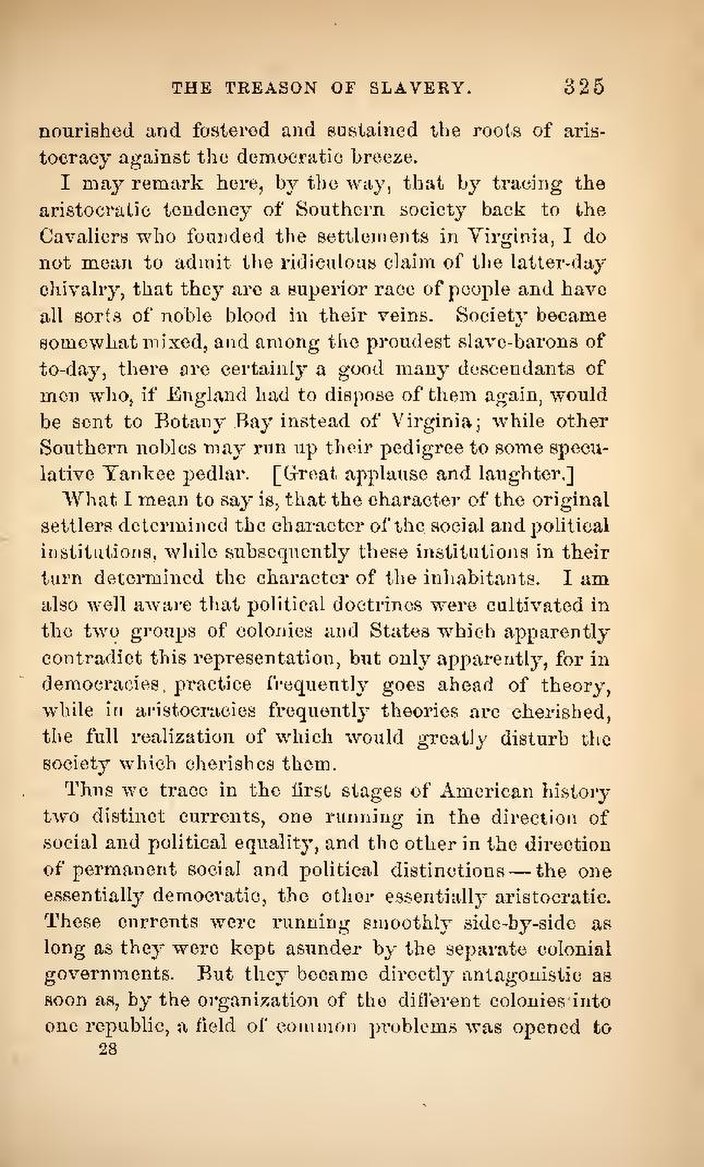nourished and fostered and sustained the roots of aristocracy against the democratic breeze.
I may remark here, by the way, that by tracing the aristocratic tendency of Southern society back to the Cavaliers who founded the settlements in Virginia, I do not mean to admit the ridiculous claim of the latter-day chivalry, that they are a superior race of people and have all sorts of noble blood in their veins. Society became somewhat mixed, and among the proudest slave-barons of to-day, there are certainly a good many descendants of men who, if England had to dispose of them again, would be sent to Botany Bay instead of Virginia; while other Southern nobles may run up their pedigree to some speculative Yankee pedlar. [Great applause and laughter.]
What I mean to say is, that the character of the original settlers determined the character of the social and political institutions, while subsequently these institutions in their turn determined the character of the inhabitants. I am also well aware that political doctrines were cultivated in the two groups of colonies and States which apparently contradict this representation, but only apparently, for in democracies, practice frequently goes ahead of theory, while in aristocracies frequently theories are cherished, the full realization of which would greatly disturb the society which cherishes them.
Thus we trace in the first stages of American history two distinct currents, one running in the direction of social and political equality, and the other in the direction of permanent social and political distinctions—the one essentially democratic, the other essentially aristocratic. These currents were running smoothly side-by-side as long as they were kept asunder by the separate colonial governments. But they became directly antagonistic as soon as, by the organization of the different colonies into one republic, a field of common problems was opened to
